Alkeran tablets 2mg 25’ct tablets Imported in Pakistan
Alkeran 2mg Tablet Overview
Alkeran 2mg tablets contain the active ingredient melphalan, which is classified as an alkylating agent used primarily in chemotherapy for various cancers.
Indications
- Multiple Myeloma: A cancer of the bone marrow.
- Ovarian Cancer: Advanced stages of cancer originating in the ovaries.
- Breast Cancer: Advanced stages of breast cancer.
- Polycythemia Vera: A blood disorder characterized by increased red blood cell production.
Dosage and Administration
- Recommended Dosage: Typically taken once daily, but the exact dosage depends on the patient’s condition and response to therapy.
- Administration: Should be taken orally, preferably on an empty stomach, at the same time each day.
-
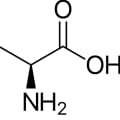
Original price was: ₨18,000.00.₨15,500.00Current price is: ₨15,500.00.
Description
Alkeran 2mg Tablet Overview
Alkeran 2mg tablets contain the active ingredient melphalan, which is classified as an alkylating agent used primarily in chemotherapy for various cancers.
Indications
- Multiple Myeloma: A cancer of the bone marrow.
- Ovarian Cancer: Advanced stages of cancer originating in the ovaries.
- Breast Cancer: Advanced stages of breast cancer.
- Polycythemia Vera: A blood disorder characterized by increased red blood cell production.
Dosage and Administration
- Recommended Dosage: Typically taken once daily, but the exact dosage depends on the patient’s condition and response to therapy.
- Administration: Should be taken orally, preferably on an empty stomach, at the same time each day.
-
Key Benefits of Alkeran 2mg Tablet
Treatment of Ovarian Cancer
Alkeran is effective in treating ovarian cancer by killing or inhibiting the growth of cancer cells. It helps prevent the multiplication of these cells, which is crucial since ovarian cancer is often diagnosed at advanced stages and can spread to other areas of the body.
Management of Multiple Myeloma
For patients with multiple myeloma, Alkeran plays a significant role in slowing down the destruction of bone tissue. It is often used in conjunction with other cancer therapies, contributing to improved survival rates by targeting and eliminating cancerous cells.
General Anticancer Properties
As an alkylating agent, Alkeran works by damaging the DNA and RNA of cancer cells, effectively stopping their growth and reproduction. This mechanism is vital for treating various solid tumors beyond just ovarian cancer and multiple myeloma.
Key Ingredients
Active Ingredient
- Melphalan: The primary active ingredient in Alkeran 2mg tablets, melphalan is an alkylating agent that interferes with the DNA of cancer cells, leading to their death and preventing further growth.
Excipients
While specific excipients are not detailed in the search results, typical formulations may include binders, fillers, and coating agents that assist in the tablet’s stability and absorption. Always refer to the product packaging or consult a healthcare professional for a complete list of ingredients.
-
Mechanism of Action
DNA and RNA Damage
Alkeran exerts its therapeutic effects by directly damaging the genetic material of cancer cells. It achieves this through the following processes:
- Alkylation: The drug attaches alkyl groups to the DNA and RNA of cancer cells, leading to cross-linking of DNA strands. This cross-linking prevents the strands from separating, which is essential for DNA replication and transcription.
- Inhibition of Cell Division: By damaging the DNA, Alkeran disrupts the cancer cells’ ability to replicate and divide. This effectively halts their growth and multiplication.
Induction of Apoptosis
The damage caused to the DNA triggers cellular mechanisms that lead to apoptosis, or programmed cell death. This is a critical process that eliminates dysfunctional or cancerous cells from the body.
Impact on Tumor Microenvironment
Alkeran may also influence the tumor microenvironment by reducing the levels of certain inflammatory cytokines, which can contribute to tumor growth and survival. By modulating these factors, Alkeran can enhance the overall effectiveness of cancer treatment.
Clinical Applications
Alkeran is particularly effective in treating conditions such as:
- Multiple Myeloma: It helps in reducing the number of malignant plasma cells in the bone marrow.
- Ovarian Cancer: It is used to manage advanced stages of ovarian cancer, where it helps to control tumor growth and spread.
-
Immune System Suppression
Decreased White Blood Cell Count
Alkeran can lead to a reduction in the number of white blood cells (leukocytes), particularly neutrophils, which are crucial for fighting infections. This condition, known as leukopenia, increases the patient’s susceptibility to infections. Regular blood tests are necessary to monitor white blood cell counts during treatment to manage this risk effectively.
Impact on Bone Marrow
As an alkylating agent, Alkeran affects the bone marrow, where blood cells are produced. The suppression of bone marrow activity can result in:
- Anemia: A decrease in red blood cells, leading to fatigue and weakness.
- Thrombocytopenia: A reduction in platelets, increasing the risk of bleeding and bruising.
Cytokine Modulation
Alkeran may also influence the levels of cytokines, which are proteins involved in cell signaling during immune responses. By reducing pro-inflammatory cytokines, Alkeran can help modulate inflammatory reactions, which may be beneficial in certain cancer treatments.
Clinical Implications
Patients receiving Alkeran should be closely monitored for signs of infection, such as fever, chills, or unusual bruising. This monitoring is essential because the drug’s immunosuppressive effects can lead to serious complications if infections arise. It is crucial for patients to report any symptoms of infection to their healthcare provider promptly.
- Alkeran (melphalan) works as an anti-cancer medication primarily through its action as a bifunctional alkylating agent. Here’s how it functions to prevent cancer cell growth:
Mechanism of Action
DNA and RNA Damage
Alkeran exerts its therapeutic effects by directly damaging the genetic material of cancer cells. It achieves this through the following processes:
- Alkylation: The drug attaches alkyl groups to the DNA and RNA of cancer cells, leading to cross-linking of DNA strands. This cross-linking prevents the strands from separating, which is essential for DNA replication and transcription.
- Inhibition of Cell Division: By damaging the DNA, Alkeran disrupts the cancer cells’ ability to replicate and divide. This effectively halts their growth and multiplication.
Induction of Apoptosis
The damage caused to the DNA triggers cellular mechanisms that lead to apoptosis, or programmed cell death. This is a critical process that eliminates dysfunctional or cancerous cells from the body.
Impact on Tumor Microenvironment
Alkeran may also influence the tumor microenvironment by reducing the levels of certain inflammatory cytokines, which can contribute to tumor growth and survival. By modulating these factors, Alkeran can enhance the overall effectiveness of cancer treatment.
Clinical Applications
Alkeran is particularly effective in treating conditions such as:
- Multiple Myeloma: It helps in reducing the number of malignant plasma cells in the bone marrow.
- Ovarian Cancer: It is used to manage advanced stages of ovarian cancer, where it helps to control tumor growth and spread.
-
-
 Chemotherapy medicationMoreUsesTreats multiple myeloma, malignant lymphoma, leukemia, neuroblastoma, ovarian cancer, adenocarcinoma, and uveal melanomaAdministrationOral, intravenousCommon Side EffectsNausea, bone marrow suppression
Chemotherapy medicationMoreUsesTreats multiple myeloma, malignant lymphoma, leukemia, neuroblastoma, ovarian cancer, adenocarcinoma, and uveal melanomaAdministrationOral, intravenousCommon Side EffectsNausea, bone marrow suppressionAlkeran (melphalan) has a specific chemical structure that is crucial to its function as an alkylating agent in cancer treatment. Here are the details regarding its chemical structure:
Chemical Structure
- Chemical Name: 4-[bis(2-chloroethyl)amino]-L-phenylalanine
- Molecular Formula: C₁₃H₁₈Cl₂N₂O₂
- Molecular Weight: 305.20 g/mol
Structural Formula
The structural representation of melphalan can be depicted as follows:
textCl
|
H2N-C-CH2-CH2-Cl
|
C6H5
In this structure:
- The L-phenylalanine component is attached to a bis(2-chloroethyl)amino group, which is responsible for its alkylating properties.
- The two chlorine atoms (Cl) are critical for the drug’s mechanism of action, allowing it to form cross-links with DNA.
Mechanism of Action Related to Structure
The structure of melphalan allows it to interact with DNA by forming cross-links, which disrupts DNA replication and transcription. This leads to the cytotoxic effects that are essential for its use in treating various cancers, such as multiple myeloma and ovarian cancer.
Combination with Chemotherapy
Synergistic Effects
Alkeran is often used in combination with other chemotherapy agents to improve treatment outcomes, particularly in conditions like multiple myeloma and ovarian cancer. For instance, when combined with corticosteroids like prednisone, studies have shown an increase in the percentage of patients achieving palliation in multiple myeloma. This combination enhances the overall efficacy of treatment by targeting cancer cells through different mechanisms.
Treatment Regimens
In ovarian cancer, Alkeran may be administered as part of a multi-drug regimen. Typical dosing involves administering Alkeran at a specific dosage for a set number of days, followed by a rest period, allowing for recovery of blood cell counts before the next cycle begins. This cyclical approach is crucial for managing side effects and maintaining treatment efficacy.
Immune System Considerations
Bone Marrow Suppression
Alkeran can cause bone marrow suppression, leading to decreased production of blood cells, which can be exacerbated when used with other myelosuppressive agents. Therefore, careful monitoring of blood counts is essential when Alkeran is combined with other treatments that also affect bone marrow function. This monitoring helps prevent severe complications like infections or bleeding due to low blood cell counts.
Immune Modulation
While Alkeran primarily acts as a cytotoxic agent, it may also have immune-modulating effects. By reducing levels of certain inflammatory cytokines, it can potentially improve the immune response in conjunction with other therapies, although this effect may vary among patients.
Patient Management
Monitoring and Adjustments
When used alongside other cancer treatments, it is vital for healthcare providers to monitor patients closely for side effects and interactions. Regular blood tests are necessary to assess the impact on blood cell counts and organ function, allowing for timely adjustments in therapy if needed.
Risk of Secondary Malignancies
Long-term use of Alkeran, especially in combination with other chemotherapy agents, may increase the risk of secondary malignancies. This risk necessitates a careful evaluation of the benefits versus potential long-term effects when planning treatment regimens.
General Precautions
- Medical Supervision: Alkeran should only be administered under the supervision of experienced healthcare professionals familiar with its potential complications. Close monitoring is essential due to the risk of severe side effects.
- Bone Marrow Reserve: Use Alkeran with caution in patients with compromised bone marrow due to prior chemotherapy or irradiation. If blood cell counts fall below critical thresholds (e.g., leukocyte count below 3,000 cells/mcL or platelet count below 100,000 cells/mcL), treatment should be paused until recovery is evident.
Laboratory Monitoring
- Regular Blood Tests: Conduct periodic complete blood counts (CBC) to monitor blood cell levels before each treatment cycle. This helps detect any signs of bone marrow suppression early, allowing for timely adjustments to the treatment plan.
Drug Interactions
- Inform Your Doctor: Patients must disclose all medications, including over-the-counter drugs, vitamins, and herbal supplements, to avoid adverse interactions. Alkeran can have significant interactions with other chemotherapy agents, necessitating careful coordination of treatment regimens.
Infection Risk
- Immunization Caution: Avoid live vaccines during treatment, as patients may be immunocompromised. Any vaccinations should be discussed with a healthcare provider beforehand.
- Infection Precautions: Patients should take precautions to reduce infection risk, such as avoiding crowded places and practicing good hygiene, especially if blood counts are low.
Pregnancy and Breastfeeding
- Avoid Pregnancy: Women of childbearing potential should avoid becoming pregnant during treatment, and effective contraception is recommended for both men and women. Alkeran is categorized as a pregnancy category D drug, indicating potential risks to the fetus.
- Nursing Considerations: Alkeran should not be administered to nursing mothers, as it is unknown whether the drug is excreted in breast milk.
Self-Care Recommendations
- Hydration and Nutrition: Maintaining good hydration and nutrition is crucial during treatment. Patients should follow dietary advice and stay hydrated to help mitigate side effects like nausea and fatigue.
- Sun Protection: Alkeran can increase skin sensitivity to sunlight, so patients should use sunscreen and protective clothing when outdoors.
-
Dietary Restrictions and Considerations
Alcohol Consumption
- Consult Your Doctor: It is not known whether it is safe to consume alcohol while taking Alkeran. Patients should consult their healthcare provider regarding alcohol intake, as it may interact with the medication or exacerbate side effects.
Sodium Intake
- Monitor Sodium: Alkeran contains sodium, which may be a consideration for patients on sodium-restricted diets. Each vial contains approximately 53.24 mg of sodium, equivalent to about 2.6% of the recommended maximum daily intake for adults. Patients should discuss their dietary sodium needs with their healthcare provider, especially if they have conditions like hypertension or heart disease.
Nutritional Support
- Balanced Diet: Maintaining a balanced diet is crucial during treatment. Patients should focus on a diet rich in fruits, vegetables, whole grains, and lean proteins to support overall health and recovery.
Managing Side Effects
- Addressing Gastrointestinal Issues: Common side effects of Alkeran include nausea, vomiting, and diarrhea. Patients experiencing these symptoms should consult their doctor for dietary adjustments or medications to manage these side effects. Staying hydrated and consuming bland foods may help alleviate gastrointestinal discomfort.
Avoiding Certain Foods
- Mouth Sores: Alkeran can cause mouth sores, making it difficult to eat. Patients are advised to avoid spicy, acidic, or abrasive foods that may irritate the mouth. Soft foods and those that are easy to swallow can be more tolerable.
Special Considerations for Pregnancy and Breastfeeding
- Pregnancy: Alkeran is unsafe during pregnancy due to potential harm to the developing fetus. Women of childbearing potential should use effective contraception during treatment and for some time after discontinuation.
- Breastfeeding: Alkeran should not be used while breastfeeding, as it may be excreted in breast milk and could harm the nursing infant.
-
Dosage of Alkeran (Melphalan)
Multiple Myeloma:
- The usual oral dose is 6 mg (3 tablets) daily. This dose can be taken all at once.
- Dosage adjustments are made based on blood counts, which should be monitored approximately weekly.
- After 2 to 3 weeks of treatment, Alkeran may be discontinued for up to 4 weeks to allow blood counts to recover. A maintenance dose of 2 mg daily may be instituted once counts are stable.
- Other regimens may start at 10 mg/day for 7 to 10 days, with adjustments based on hematological response.
Epithelial Ovarian Cancer:
- A common regimen is 0.2 mg/kg daily for 5 days, repeated every 4 to 5 weeks depending on hematologic tolerance.
Storage of Alkeran
- Alkeran tablets should be stored in a refrigerator at temperatures between 2° to 8°C (36° to 46°F).
- It is important to protect the tablets from light and keep them in their original packaging to maintain stability.
Reviews and Patient Experiences
- Efficacy: Many patients report positive outcomes, especially when Alkeran is used in combination with other treatments like prednisone, which can enhance its effectiveness in managing conditions like multiple myeloma.
- Side Effects: Common side effects include nausea, vomiting, and potential bone marrow suppression, leading to decreased blood cell counts. Patients often emphasize the importance of regular blood monitoring during treatment to manage these risks effectively.
- Gradual Response: Some reviews highlight that the therapeutic effects of Alkeran may take time, with improvements potentially continuing over several months. Patients are advised to remain patient and adhere to the treatment plan for optimal results.
-
Drug Interactions
1. Chemotherapy Agents
- Caution with Other Cytotoxic Drugs: Combining Alkeran with other chemotherapeutic agents, such as busulfan, can enhance the risk of bone marrow suppression. This necessitates careful monitoring of blood counts.
2. Immunosuppressants
- Ciclosporin: Used to prevent organ rejection, ciclosporin may increase the risk of infections when used with Alkeran due to both drugs’ immunosuppressive effects.
3. Antibiotics
- Nalidixic Acid: This antibiotic, used for urinary tract infections, may interact with Alkeran, increasing the risk of adverse effects or reducing the effectiveness of treatment.
4. Hormonal Therapies
- Combined Oral Contraceptives: Patients using hormonal contraceptives may have an increased risk of venous thromboembolism when treated with Alkeran, particularly in those with multiple myeloma.
5. Vaccines
- Live Vaccines: Patients receiving Alkeran should avoid live vaccines (e.g., measles, mumps, rubella) as they may lead to infections due to the immunosuppressive effects of the drug.
6. Other Cancer Treatments
- Lenalidomide and Thalidomide: When used in combination with Alkeran, these medications may increase the risk of secondary malignancies, including solid tumors. Careful evaluation of risks and benefits is essential.

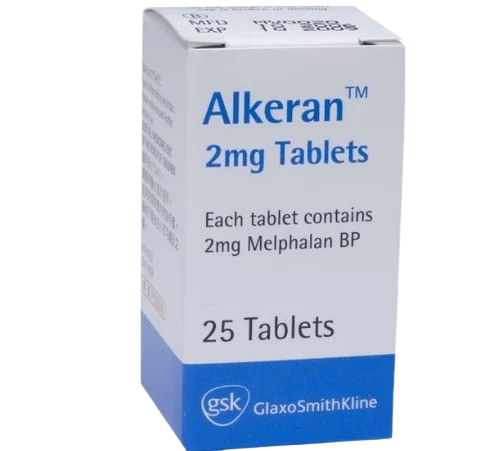

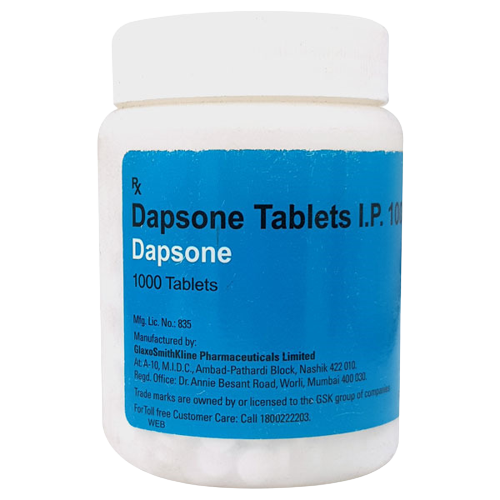
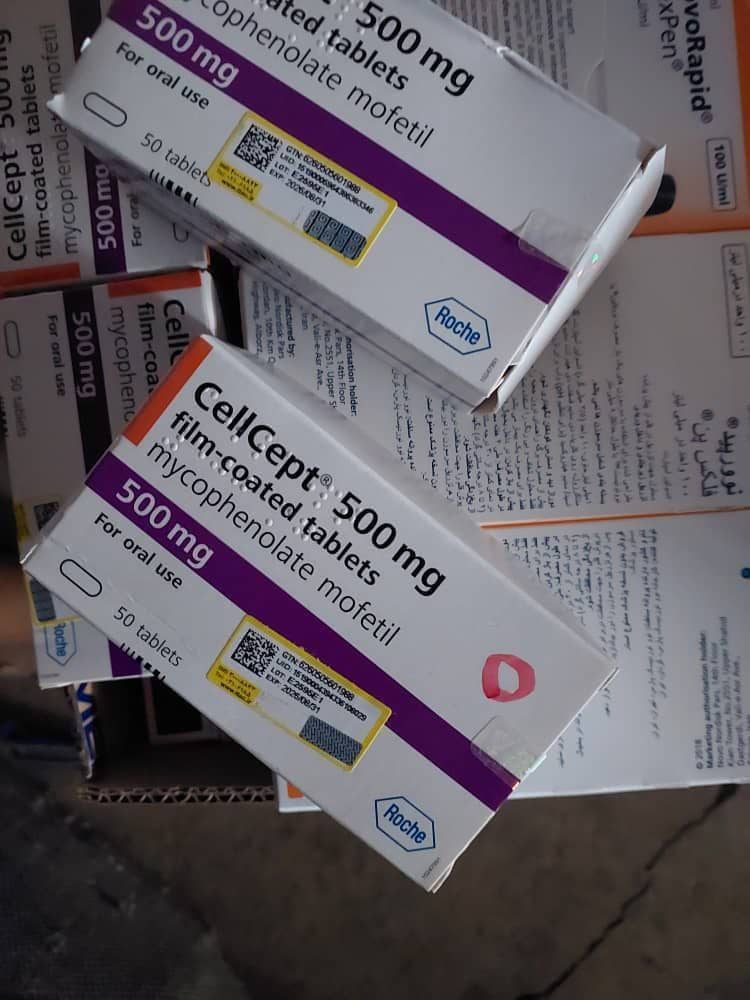


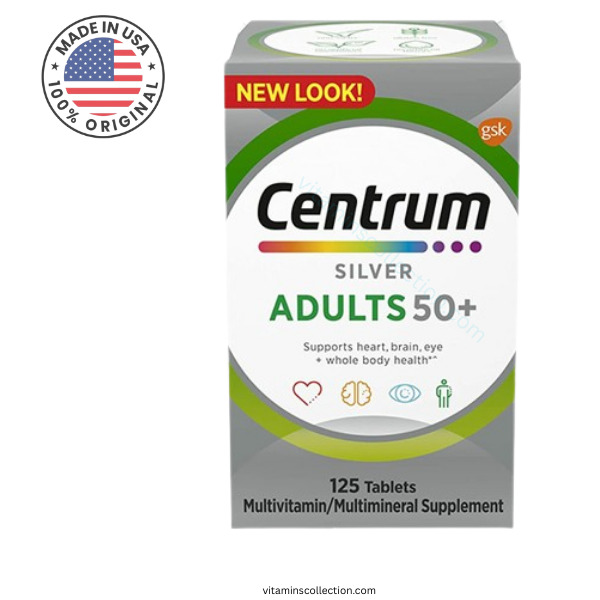
Reviews
There are no reviews yet.